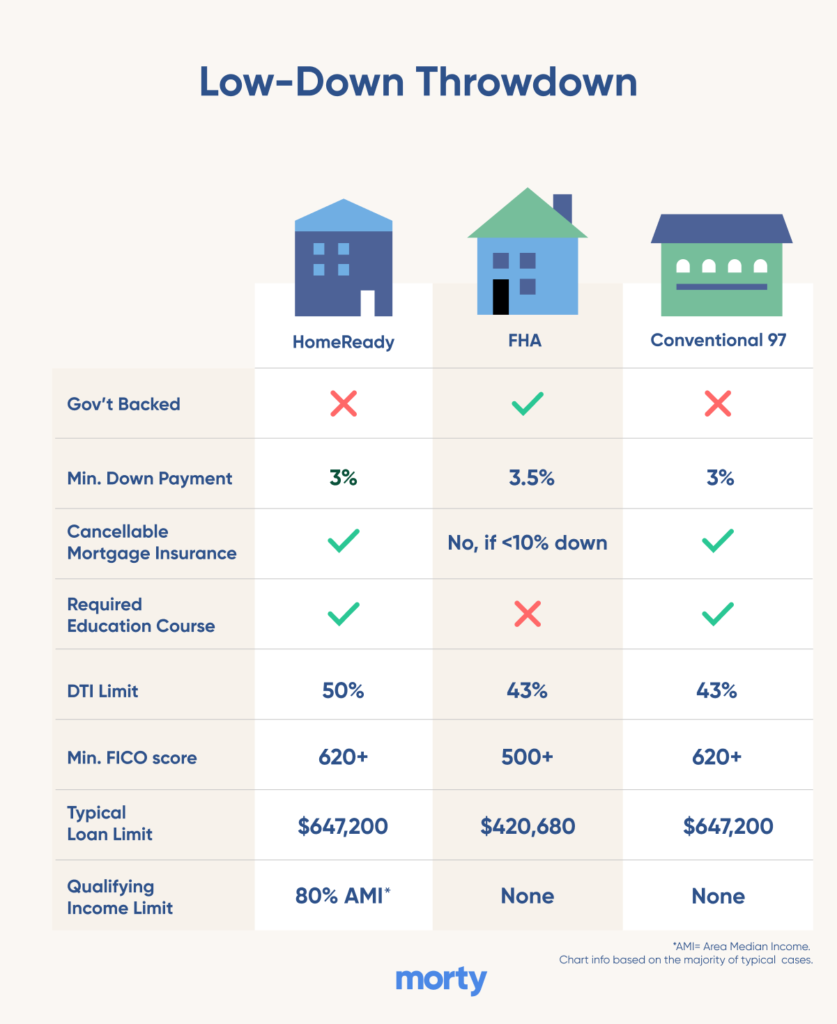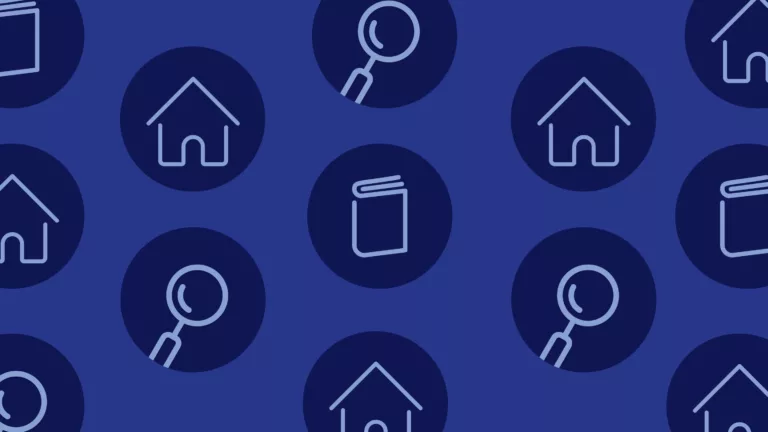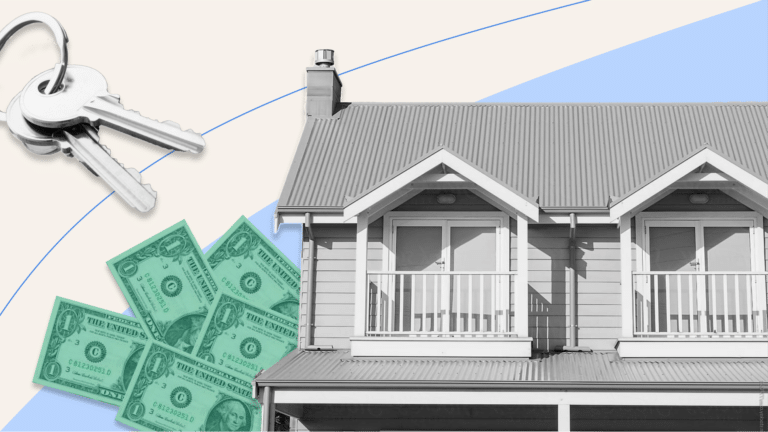Being a homebuyer in today’s challenging market is enough to inspire anyone to consider all sorts of financing alternatives on the journey toward buying a home. But in your mortgage search, you may have overlooked HomeReady.
Never heard of it? You wouldn’t be the first. Now offered through Morty, this affordable housing program might not get the shine that it should, considering it’s packed with potential benefits for qualified borrowers.
But how does HomeReady compare to other loan options? Who qualifies? And how can you be sure it’s a good choice for you? Read on for the low-down on this low down payment option!
What is HomeReady?
If you’re not familiar with HomeReady, it may be because it’s a relatively new mortgage program, established in December 2015 by Fannie Mae.
Wait – who’s Fannie Mae?
A government-sponsored enterprise (GSE) that buys loans from private lenders. Fannie Mae doesn’t give out the mortgages, but rather facilitates the whole process by buying these loans.
Many conventional loans are liaised via Fannie Mae and the other big GSE, Freddie Mac.
Does the government own Fannie Mae?
No. Even though Fannie and Freddie were created by Congress, they aren’t a federal agency – they’re both Fortune 500 corporations, and their loans are privately-backed.
Why did Fannie Mae create HomeReady?
They created HomeReady as a subset of their conventional loan options to facilitate lending toward qualified borrowers who don’t have a large down payment saved up – which tends to be one of homebuying’s biggest barriers to entry.
HomeReady (and Freddie Mac’s HomePossibleⓇ program) were also likely designed to compete with government-backed Federal Housing Administration (FHA) loans, the former low-down payment king.
If you qualify, HomeReady allows you to finance a home purchase for much less money down at closing than most conventional loans. Plus, it offers a host of other benefits that help set the program apart.
HomeReady’s Key Benefits:
Put as little as 3% down on your mortgage
- This is HomeReady’s claim-to-fame – at 3%, it’s one of the lowest minimum down payments of any mortgage program.
- In 2021, the average down payment on a home was 12%. In comparison, a 3% down payment allows you to finance that same home at just a quarter of that amount upfront, helping your money go further.
More flexible funding for your down payment
- While other loan types (particularly government-backed programs like FHA) may have relatively stringent restrictions regarding where your down payment can come from, HomeReady allows a wider array of sources – all without requiring a minimum contribution from the borrower’s own funds.
- Gifts, grants, cash on-hand, and Fannie Mae’s Community Seconds program (a form of down payment assistance) are all viable options with HomeReady.
Homebuyer education options
- Every first-time homebuyer that finances with HomeReady completes a required homeownership education course.
- Expect to learn things from the course like when to buy, how to save for a home purchase, the mortgage loan process, and even how to shop and work with a real estate agent.
- There are multiple course providers available, the two most popular being Fannie Mae’s HomeView and Framework.
Preferable mortgage insurance conditions
- You’ll still have to pay a monthly mortgage insurance premium, which is typical for buyers who put less than 20% down.
- But, while similar low-loan mortgages like FHA may require refinancing to ultimately cancel mortgage insurance, HomeReady’s mortgage insurance rates are reduced at LTVs from 90-97% and cancel entirely at 20% down.
Comparing HomeReady to the Competition
Buyers considering HomeReady may likely be looking at two similar competitors, which each share their own key differences.
FHA Loans vs HomeReady
Key differences:
- FHA is government-backed, HomeReady isn’t. Since HomeReady is backed by a private lender, it has more flexibility with down payments and credit history, as you’ll see below.
- HomeReady has a lower minimum down payment, albeit by only a half-percentage point (3% vs 3.5%).
- FHA has a lower minimum credit score than HomeReady. Buyers can finance with FHA at credit scores as low as 500. That said, credit scores between 500 and 579 require an even larger down payment (10%).
- Mortgage insurance via FHA must be refinanced in order to be canceled unless you put more than 10% down, while all HomeReady mortgage insurance can be canceled.
- Unlike HomeReady, FHA loans have no maximum (or minimum) income requirements.
- HomeReady requires education courses on homebuying, while FHA doesn’t.
HomeReady vs HomePossibleⓇ
HomeReady and HomePossible have a number of similarities, started by sister companies with similar intentions – to provide low down payment loan options for buyers.
- Both HomeReady and HomePossible programs offer the chance to finance for as little as 3% down, feature cancellable mortgage insurance, and even require similar homebuyer education courses.
- The only major difference between HomeReady and HomePossible is the credit score cutoff: HomeReady has a lower limit (620) compared to HomePossibleⓇ (660), making it the better option for those whose credit score might not be as high yet.

Who’s eligible for HomeReady?
There’s many potential benefits to HomeReady – but you’ll need to be eligible in the first place. Here’s a few key requirements potential HomeReady borrowers should have to qualify:
- An income at 80% or less of a property area’s annual median income (AMI)
- AMI can vary greatly by county – check here to get a sense of yours
- A credit score of 620 or higher
- Credit scores above 680 may get an even better interest rate
- A mortgage for one’s primary residence only
- A completed homeownership education course
- Can be satisfied via third-party courses – or for free via Fannie Mae’s own HomeView course
- Courses take approximately 4-6 hours to complete
- Only required if borrower is a first-time homebuyer
Do I need to be a first-time homebuyer?
No, both first-time and repeat homebuyers may be eligible for HomeReady.
What kind of homes can be financed with HomeReady?
- In addition to single family homes, condos; co-ops; PUDs; manufactured homes; and even some 2-4 unit properties can all be financed via HomeReady.
- But, a buyer using HomeReady can only have one other additional financed property at closing.
When is HomeReady a wise choice?
So, you have the foundations of HomeReady – and you’re eligible to boot! But you may still be wondering if HomeReady is right for you. This is your next home, after all, and you want to be sure you’re picking the financing option that best fits you.
Generally, there are a few major reasons why you might want to consider HomeReady:
- You have limited cash for a down payment.
- If you don’t have a large surplus of cash saved up for a down payment, HomeReady can get you a mortgage with less down than nearly any other program (eligible veterans may also want to check out the zero-down VA Program).
- You need a flexible source of financing for your down payment.
- Perhaps you’ve received a government or community grant. Or you have an incoming gift from a family member toward your new home. While other loan types might be more restrictive about what can count toward your down payment, HomeReady tends to allow a wider range of sources.
- Your credit score isn’t sky-high, but you’re still looking to own a home.
- If you have a credit score of 620 or greater, you can qualify for a loan through HomeReady – and you can get an even better rate if your score is over 680.
- You want support as you learn more about homeownership.
- If you’re interested in broadening and deepening your homeownership knowledge, the required education courses HomeReady entails can actually be a benefit. Plus, the Morty Blog has lots of articles on a wide range of topics to supplement your research!
“Ready to buy a home” doesn’t always mean “HomeReady”
HomeReady can be a powerful financing option, but that doesn’t make it a universal solution – even if you qualify. Limitations on the total loan amount, plus potentially higher interest rates than similar loans may wind up making other mortgage types a better fit.
To that end, one way to know if HomeReady is the right fit for you is by learning more about different loan types so you have a strong working knowledge of your options. Check out our articles on FHA loans, ARMs, and other alternative mortgages.
HomeReady or not… you can start here!
All-in on HomeReady? Or out to compare your options? You can get started
with either on a single, simple platform! Visit Morty to find out if you qualify
for HomeReady, check out the latest rates, and get pre-approved quickly
once you’re found the right loan for you.







